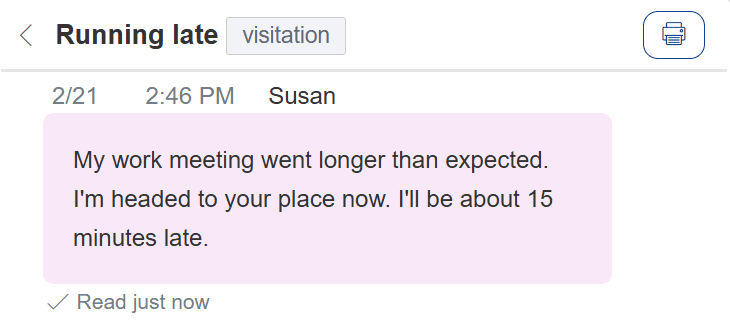How To Deal with an Inconsistent or Uncooperative Co-Parent
It's hard to co-parent with someone who doesn't follow your custody order or agreement. Whether it's a parent who frequently misses visits or always finds a way to disagree, it can be positively frustrating.
Generally, it's best for children to have two parents in their lives — so long as neither parent is a danger to their safety. While it's tempting to cut out an inconsistent or uncooperative co-parent, trying to make the co-parenting relationship work is probably best.
How to deal with an inconsistent co-parent
Inconsistent co-parents come in and out of their child's life as they please. They might show up for a visit one week, then disappear the next. When they do show up, they're often late. They return the kids hours later than they're supposed to, and in between visits, often don't bother to check in with their co-parent to see how their child is doing.
Here's how you can deal with an inconsistent co-parent.
Give them chances, but not at the expense of your child
If you see your child breaking down in tears because your co-parent didn't show up for a visit, you might start thinking about withholding visitation. However, this could backfire if your co-parent decides to take you to court. Instead, try to have a conversation with your co-parent about how much their absence hurts your child.
Ultimately, a parent doesn't have to exercise their visitation rights. If they continue being inconsistent, go to court to pursue limiting visitation. If they truly don't want to be involved in their child's life, you could look into terminating their parental rights.
Adjust your schedule
Change your schedule to match how often the inconsistent co-parent can show up.
If you have a custody order and want major changes to the schedule, petition the court for a modification. You're likelier to get approval if the other parent is on board with the changes.
If you don't have a custody order, you can get one (highly recommended) or agree on an unofficial arrangement.
In any of these cases, start by negotiating with the other parent. A mediator could help you get past your personal feelings to come to an agreement. Bring the proposed schedule you believe is best for your child so the other parent can see it clearly. Bring evidence that support your proposed changes, too, like an actual parenting time report and entries about your co-parent's inconsistency from a parenting journal.

You can customize this to fit your situation with Custody X Change.
How to deal with an uncooperative co-parent
Uncooperative co-parents are in constant contrarian mode. They may try to sabotage your parenting plan and look for ways to start arguments. They may disrespect you and even try to turn your child against you.
Here's how you can deal with an uncooperative co-parent.
Don't give in to their threats
Stand your ground when an uncooperative co-parent demands you make a change to your agreement or custody order.
Remind them unapproved changes do not override what has been approved by a court. Whether or not you have an order, your co-parent's last-minute disruptions to your schedule or refusal to discuss child-related decisions in a timely manner can stress out your child.
They may threaten you with court if you refuse to cave to their demands. In case they follow through on their threat, prepare for court by keeping track of their demands and how their lack of cooperation impacts your child.
Use a co-parenting communication app
Uncooperative co-parents may ignore you, using excuses like, "I didn't get your message."
They won't have the excuse if you use an app dedicated to co-parenting communication. Messages about your kids will be separate from others, and they can receive notifications when they come through. Plus, you'll have a record of your conversations — with read receipts — to use in court if necessary.

You can customize this to fit your situation with Custody X Change.
Proving your co-parent's actions in court
The inappropriate co-parenting of inconsistent and uncooperative co-parents often means you need to go to court to protect your child from their behavior. You'll need to demonstrate to the judge that a new arrangement is needed.
Custody X Change has the tools you need to prepare a solid case for court:
- Create a parenting plan with clauses to combat your co-parent's misbehavior. For example, stipulate that if they miss three visits without notice, their parenting time will be reduced to once a week.
- Maintain a record of conversations to demonstrate how your co-parent makes it difficult to carry out your custody arrangement.
- Keep a parenting journal to help prove what the parent has done and how it has impacted your child.
- Mark missed visits on your actual parenting time calendar and automatically calculate the total amount of time missed.
- And more
Custody X Change provides a convenient way to deal with inconsistent and uncooperative co-parents.
